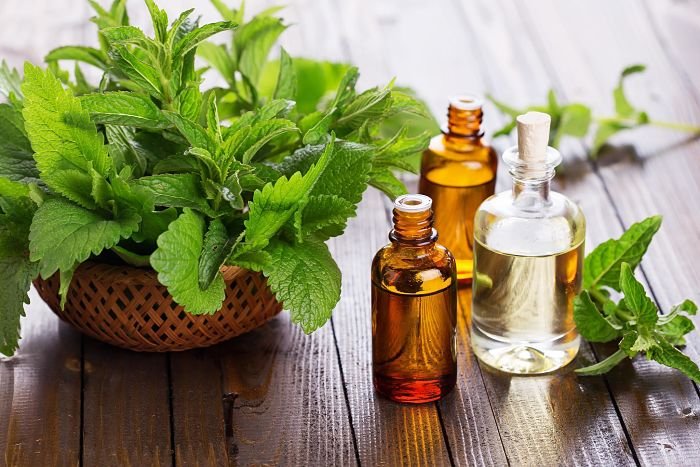5 essential oils to relieve congestion and cough

Coughs, nasal and throat congestion can be caused by allergic reactions, also colds or viral and bacterial infections of the respiratory tract.

Phyto therapy or herbal medicine always offers many alternatives to conventional medicine such as essential oils to treat congestion. Commercial syrups that can cause cardiovascular disorders or nervousness, or are very sugary and not recommended for diabetics.
Since ancient times herbs have been very useful in the control of acute respiratory symptoms.
In particular, aromatic or essential oils that can be roots, leaves, flowers, seeds or the resin of their trunks.
Some natural products have been studied, determining their properties to control coughs, expectoration and nasal and throat congestion.
These oils are also called volatile or ethereal and generally provide the essence of the plant’s fragrance and its specific flavor.
Table of Contents
Essential oils to relieve congestion
Next, we will mention the 5 most used essential oils to improve cough and congestion:
1. Peppermint oil
There are several species of mint plants and hybrids. The official plant is called Peppermint.
The composition may vary according to the particular species and type. In general, it is composed of: menthol between 35 to 45% and mentone between 15 and 32%. When heated, 55 to 75% of its essential components are lost.
Its mechanism of action is based on the relaxation of the smooth muscle of the bronchi, improving bronchospasm and also favors the exit of pulmonary and bronchial secretions.
Its antiseptic, antiviral and anti-inflammatory properties have also been shown. They have been particularly useful in nasal and respiratory infections in inhaled form.
The recommended dose for adults is 1 cup every 8 to 12 hours. It is prepared with hot water and 3 to 5 drops of the essential oil are added. In children, 1 cup is used every 24 hours. So far, no risk in pregnancy or lactation has been determined. It can generate drowsiness so it is recommended to avoid operating special machinery or driving vehicles long distances while using this oil.
2. Oil of oregano
Its main active component is Carvacrol, between 40 to 70%. Also available are: thymol, terpinen, cymene, myrcene and some flavonoids.
It has antiviral and antimicrobial properties. It also acts on the epithelium of the bronchi, mobilizing secretions.
Its usual dose is one cup every 8 hours. In children it can be used, although there are no studies on the ideal dose.
3. Eucalyptus oil
The active or essential component is eucalyptol between 45 to 75%, the rest of its components are flavonoids, tannins and phenolic oils.
Eucalyptol has an effect on the respiratory tract. Improves bronchial and pulmonary secretions, increasing their mobility and expulsion. It also has a bronchodilator effect through the relaxation of the bronchial smooth muscle.
The antimicrobial properties of eucalyptus have been studied, especially at the respiratory level, with a great effect on common germs in that area such as streptococcus. It has been seen to stimulate the immune system.
It is not recommended to use eucalyptus for many days. You should see a doctor if there is no improvement in the first days of use.
Along with eucalyptus oil, you should drink plenty of water.
The other important active component of eucalyptus is cineole, which has important antioxidant effects.
Eucalyptus oil can be bought already manufactured or prepared with leaves and flowers.
In the case of coughs or respiratory infections, it is always best inhaled, for which water is boiled and 2 drops of the oil are placed.
You can prepare infusions with hot water, adding 1 to 2 drops of oil, and then it can be sweetened with honey or stevia.
It is also used topically, mixing 1 to 2 drops of eucalyptus oil with olive oil and applying to the chest.
They can also be mixed with other oils such as lavender and mint, to obtain greater bronchodilator and antiseptic benefits: for this, 7 drops of eucalyptus oil, 4 drops of lavender oil and 4 drops of oil are mixed with water. mint, and inhale the steam for a time of 5 minutes, at least 3 times a day.
4. Thyme oil
Its essential components are thymol, carvacrol, anethole, borneol and cienol.
It has been used for many years as a cough suppressant and antiseptic, both for bacteria, viruses and fungi.
It is not recommended during pregnancy or lactation.
In case of sore throat, cough and mucus, 10 to 15 drops with water can be inhaled, it is also used for infections of the paranasal sinuses or bronchial respiratory infections.
There are several ways to prepare it:
It can be infused, boiling water and placing a small spoonful of thyme, let it rest and strain. It can be taken every 8 hours.
In case of infections of the oral cavity and pharyngitis, gargles with water and thyme can be done.
If you want to inhale, you can place about 3 tablespoons of thyme in a container of water and inhale. They are particularly recommended for sinusitis.
It has been used in whooping cough and asthma mixed with other herbs with antimicrobial and bronchodilatory power.
5. Lemon oil
It is also called citric oil. It has been used since ancient times for different diseases, obtaining its essential oil through very rudimentary processes. They have been used as an antibiotic, anti-inflammatory, among other benefits
Its main component is limonene. It is made with the skin or rind of the lemon. Currently recommended for a sore throat due to its anti-inflammatory and antibacterial effect.
But its use has also been proposed in bronchial and lung diseases of infectious origin. Due to its antioxidant capacity, it strengthens the immune system.
It can be used in hot water with 5 drops of the essential oil for infusions or inhale the steam with water and 3 drops of the oil.
The oil can be prepared together with the olive oil for external use.
